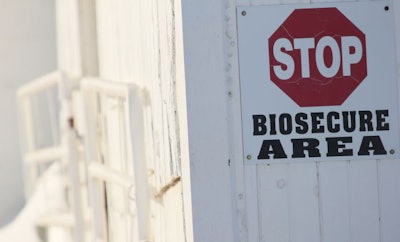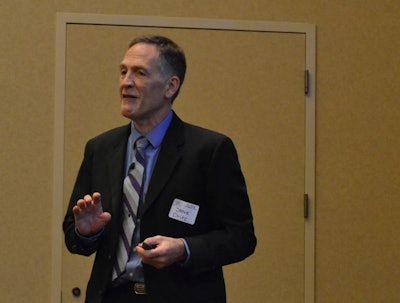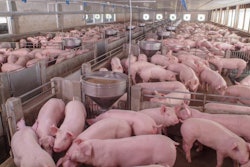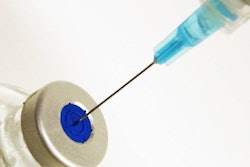
After PEDv is discovered at Kansas State University swine unit, university improves its biosecurity and uses those lessons to help others reduce threat of African swine fever
Prior to March 2019, the animal science faculty at Kansas State University (K-State) thought its swine unit had solid biosecurity practices in place.
It had been free of porcine reproductive and respiratory syndrome
for nearly 20 years, and it no clinical swine influenza virus or corona virus infections. For nearly two decades, the K-State swine herd was healthy.
Then, porcine epidemic diarrhea virus (PEDv) struck at the K-State swine unit.
Speaking at the Kansas State University Swine Day on November 21, Steve Dritz, professor and swine specialist at K-State, told of how the university responded to its first swine disease event in recent history.
 Steve Dritz, professor and swine specialist at Kansas State University (Roy Graber)
Steve Dritz, professor and swine specialist at Kansas State University (Roy Graber)“We never had (a PEDv) infection at our farm prior to March, and we thought our biosecurity was pretty good. We were maybe a little cocky and overconfident because of that,” Dritz said.
But the university had an action plan, which it quickly initiated.
Dritz said K-State was aware that its existing feed transfer protocol was a weaker link, because its feed bins were within the perimeter zone of the farm. But it developed a more biosecure feed transfer zone, which to date has helped the unit keep its feed mill negative of the virus.
Other changes to its biosecurity plan included requiring those who enter the swine unit have clean coveralls going into each room, all outside entrance to the farm is limited, and employees in the finisher area, farrowing and nursery areas, and breeding and gestation areas are segregated.
The K-State swine unit is presently free of PEDv and has been repopulated with 90 gilts, Dritz said, but he is not getting overconfident like maybe he once was.
“We’re not quite out of the woods, yet,” Dritz said.
Applications for ASF control
Dritz noted that biosecurity measures that are effective in keeping PEDv away can also be effective in keeping African swine fever (ASF) away.
He is concerned about the fact that an estimated 75% of the world’s pigs are being raised in countries that have tested positive for ASF.
Vietnam is one of those countries. Dritz said earlier in 2019, he and his daughter were riding bikes in Vietnam, and she pointed out to him something in the river. It turned out to be a dead sow.
“I had heard about this. That’s the type of thing that’s going on,” Dritz said. “There’s so many dead pigs in this area, those poor farmers don’t know what to do, and they’re throwing them in the river.”
K-State faculty members have been working with people in the Vietnamese pig industry regarding better biosecurity. He cited an example in August when they tested trucks on the farms, and that even though they did a good job with keeping the outsides of the trucks clean, that wasn’t necessarily the case on the insides. After K-State faculty shared cleanliness on vehicles’ interiors was just as important as it was on the exteriors, improvements were made.
“The story that we collected and the data that we collected at our farm is having an impact in Asia on what’s happening there,” Dritz said. “We’re translating some of those things from K-State here, to Asia.”

















